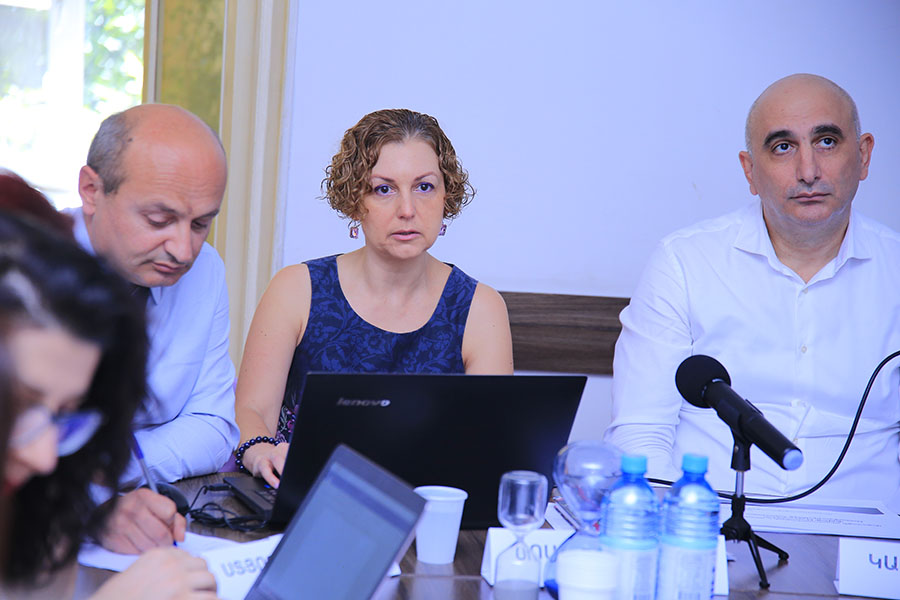
On May 27, Monday, off-the-record entitled “Vetting of judicial system: from decision to implementation” was launched at the Armenian Institute of International and Security Affairs (AIISA).
Main speakers of the discussion were Sossi Tatikyan, international expert on security sector reforms, and Karen Zadoyan, president of Armenian Lawyers’ Association. They reflected to issues of investment of transitional justice, as well as one of its key tools—vetting.
Introducing international experience of transitional justice and vetting in the context of security and judicial sector reforms in the African continent, Balkans, post-Soviet and post-socialist European and even developed democratic countries (USA, UK), Sossi Tatikyan reflected to various models of vetting, their success and failures, applied principles and criteria in combination with her practical experience of designing and implementing vetting in three countries, theoretical studies and policy recommendations provided by prominent international experts. She nominated a scope for issues and questions for the Armenian reality and stressed the necessity of developing vetting in compliance with international standards, however, a localized model for national needs.
Karen Zadoyan, in his turn, introduced well-known international vetting models in the context of declared judicial and security sector reforms declared in Armenia, by shaping particular scenarios and legal proceedings of vetting’s successful implementation within Armenian sovereign decision and model, systemic approach, RA constitutional and international liabilities, on account of lessons learned from the international experience of implementation of vetting.
Other experts, analysts, political figures, law-makers and lawyers participating in the discussion reflected not only to the issues raised, but also to parliamentary hearings held at RA NA on May 24 entitled “Perspectives for application of transitional justice tools in Armenia”, by introducing their approaches around practical issues of implementation of the vetting mechanism in Armenia, tracking the decisions made as a result.
NA MPs, members of RA Chamber of Advocates, experts from Anti-Corruption Coalition of Civil Society Organizations of Armenia and other organizations, brought their participation to the discussion. Representatives from EU Delegation to Armenia and Embassy of Bulgaria to Yerevan were following the discussion.
As a result of the discussion decision was made to make a policy brief and to provide it to RA Government, RA National Assembly, policy makers, media and wider public.
